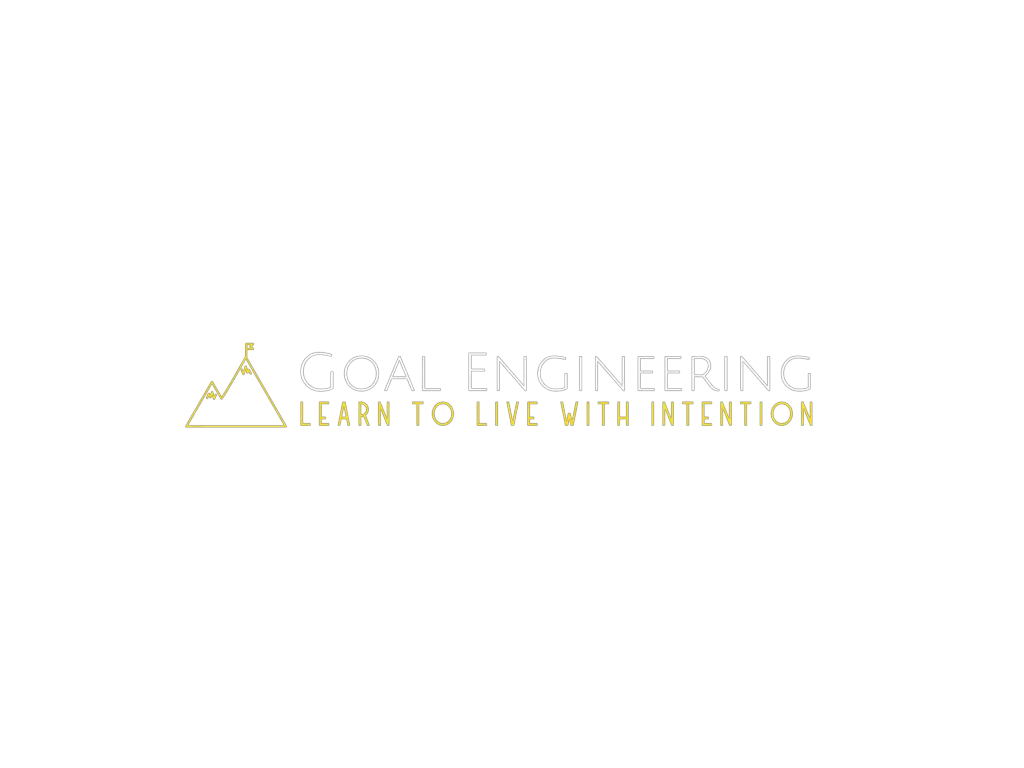I love to set goals and make plans. It’s one of my greatest strengths and I’ve seen and done a lot of really cool things because of it. But there are a few disadvantages of goal-setting that I sometimes try to sweep under the rug.
Today I’m going to bring them to light and explain a few ways I’ve learned to overcome them.
1. Overthinking, Over-Preparing, and Overplanning
“Stupid people just do. We tend to overthink. If we could eliminate the “over” and just think, then we could do, too. Only we’d be smarter doers because we’d be thinkers.”
― Sarah Strohmeyer
I’ve always considered myself a thinker or scholar. I love to come up with new ideas by bringing other ideas together. Planning and preparing so that things go well is also one of my favorite things to do. And I’m really good at it, too.
But I sometimes overdo it and that’s when things don’t get so fun anymore.
I overthink and get stuck in my own head. Sometimes this makes me depressed and it’s hard to break free from the rut. I’ll even waste time over-preparing or overplanning and stress myself out.
It’s hard to enjoy something I’ve planned ahead for when I can’t break free from trying to prepare for it!
Beating this is simple, though. It’s called having an action mindset, which means valuing action overthinking but only at the times when it’s better to act than to think.
You can get an action mindset by:
- Trusting that you’ve done your work of planning thoroughly enough. You should be confident that your plan is the best you can do. It should be just thorough enough that if you did all your action steps you’d definitely see the outcomes you want, but no more complicated than that. If you ask yourself “what’s the most important thing I can do to reach the outcomes I want” in each of your planning sessions, you’ll make this happen every time.
- Recognizing that you only learn what’s best once you act. You can plan and prepare all day, but ultimately, doing is what gives you the best results and information about how to move forward. This is why you have your planning sessions in the first place—so you can determine what the past has taught you about where to go next!
- Accepting imperfection by seeing each repetition as an experiment. Every blog post I write is better than the last. I repeat them because I enjoy it and the practice makes me get better. When it’s time to write, I don’t think about whether or not I should be writing. I know I will grow faster if I stop thinking and just write. The same is true whether your goal is to become an athlete, be a better parent, improve your financial situation, grow your spirit, or anything else.
The only way to get results is to act, so get into the mindset of acting more than you think in the times that you need to get stuff done.
Enjoy the work you do and plan on doing work that you enjoy to lead you to each of your goals.
Learn to love the process instead of just seeking outcomes and you’ll start to see your growth skyrocketing.
2. Not Living In The Moment
“If you are depressed you are living in the past.
If you are anxious you are living in the future.
If you are at peace you are living in the present.”― Lao Tzu
One thing I love about goal-setting is that it lets me learn from the past and prepare well for the future. The ability to take a past “failure” and analyze it to see what to do next is one of my favorite things.
But it’s all too easy to take this too far and live in either the past or the future. This is why it’s one of the worst disadvantages of goal-setting. It holds a lot of people back from their full potential. Not just their potential for success, but their potential to be happy.
To combat this disadvantage of goal-setting, get in the habit of only looking back and thinking ahead during your planning and accountability sessions. And be meticulous about having those sessions at the right times and making them succinct.
You don’t need to spend very long planning. You should review the past and plan ahead once every:
- Day, for about ten minutes.
- Week, for about an hour or so.
- Quarter, for a few hours.
- Year, which includes a few days of reflection and preparation.
Notice how the amount of time planning is only a small percentage of the rest of each time period. That’s because a little preparation goes a long way, once you figure out how to do it efficiently. It’s okay if it takes you longer at first, but eventually, you’ll get much faster at making effective plans.
Now here’s the big rule that you need to stick to: when you’re not in planning mode stick to an action mindset, as we’ve already learned about, and also live in the moment.
And remember that the key to living in the moment is gratitude.
Take just a few moments right now and look around you. What do you see that is beautiful? What are you grateful for? Breathe in slowly, hold it for a moment, then exhale slowly. How many things can you find that you are thankful for at this moment?
Try this with everything you do, every minute of the day. Especially do it when eating, spending time with loved ones, and relaxing or having fun.
To make living in the moment even easier, find something to remind you to live in the moment every time you see or think of it. I have a little rock that I carry in my pocket to help me, and it works. Every time I feel the rock in my pocket, it reminds me how great life is and turns my attention to what’s happening right now.
3. Overwhelming Yourself
“Less is more. Progress is made through precise, persistent, and purposeful pushes.”
― Scott Perry
Too much of a good thing is bad for you. This happens all the time with goal-setting. Once you figure out a process to achieve your goals and start to see some success with it, you try to use it for everything you want to change about your life. And that only leads to overwhelm.
I’ve seen it before, it’s one of the most common struggles people have with setting goals. Maybe you’ve done it too—you get so excited about all that you want to improve on, set some big goals for New Year’s, and then give up by February.
The reason you get overwhelmed and quit, though, is simply because you’re overdoing it. The problem isn’t with goal-setting itself, it’s just in the way you’re going about it.
You should never try to change everything at once. You’ll always fail this way. Instead, set a maximum of just four goals at a time. There are a couple of reasons for this:
- Four goals lets you do less but better. To get the best tasting fruit, you have to get rid of some fruit before it all gets ripe. Prune your goals down to just four and you’ll have the energy to make those the best.
- You only need to focus on four areas of life to succeed— faith, family, finances, and fitness. When you reach your goals in each of these areas you start to thrive all around. The upward spiral you get into keeps you moving forward and expands your happiness like never before.
To make this easier, simply ask yourself what will have the biggest effect in each of the four areas I’ve mentioned above. Set just one high-impact goal in each of those areas and you will beat overwhelm and succeed.
Wrapping Up
It’s not easy to recognize the flaws in one of my favorite things in the world. But even goal-setting has its disadvantages sometimes. Here are the three I’ve covered today and how to beat them one more time:
- Overthinking, which you can beat by getting into an action mindset.
- Living in the past or future, which requires gratitude to beat.
- Overwhelming yourself, which goes away when you simply set less but better goals.





